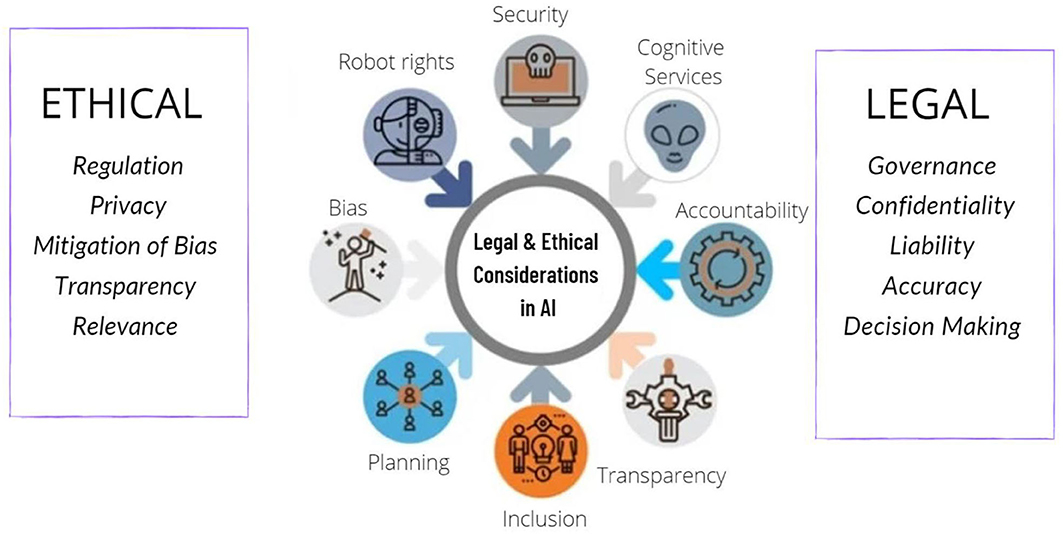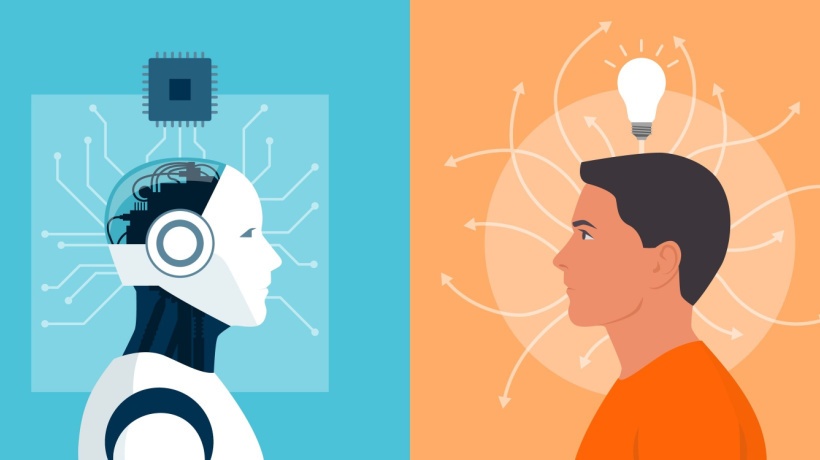Navigating the Ethical Challenges of AI Implementations

Introduction
Artificial Intelligence (AI) has become an integral part of our lives, revolutionizing various industries and sectors. However, with its rapid advancement, ethical challenges have emerged. This article explores the ethical considerations associated with AI implementations and provides insights on how to navigate these challenges.
Ethical Challenges in AI
Data Privacy and Security
One of the primary ethical concerns in AI implementations is the protection of data privacy and security. As AI systems rely on vast amounts of data, ensuring that personal information is handled securely and used responsibly is crucial. Organizations must establish robust data protection measures and adhere to strict privacy regulations to mitigate the risks associated with data breaches and unauthorized access.
Algorithmic Bias
Another significant ethical challenge is algorithmic bias. AI algorithms are trained on historical data, which may contain inherent biases. If these biases are not addressed, AI systems can perpetuate discrimination and inequality. It is essential to regularly audit and evaluate AI algorithms to identify and rectify any biases, ensuring fair and unbiased outcomes.
Transparency and Explainability
AI systems often operate as black boxes, making it challenging to understand how they arrive at their decisions. Lack of transparency and explainability can lead to distrust and hinder accountability. To address this challenge, organizations should strive to develop AI systems that are transparent and provide explanations for their decisions, enabling users to understand the underlying processes.
Job Displacement and Economic Impact
The widespread adoption of AI technologies has raised concerns about job displacement and its economic impact. While AI can automate certain tasks, it is crucial to consider the potential consequences on employment. Organizations should focus on reskilling and upskilling employees to adapt to the changing job landscape and ensure a smooth transition without leaving individuals behind.
Ethical Decision-Making
AI systems often make autonomous decisions, raising questions about the ethical framework guiding these choices. Organizations must establish clear ethical guidelines and principles for AI implementations. This includes defining the boundaries of AI decision-making, ensuring alignment with societal values, and incorporating ethical considerations into the design and development process.
Summary
Implementing AI technologies can greatly enhance efficiency, productivity, and decision-making processes. However, it is crucial to recognize and address the ethical challenges that come with these advancements. One of the primary concerns is the potential for bias in AI algorithms, which can perpetuate discrimination and inequality. Transparency and accountability in AI systems are essential to ensure fairness and prevent unintended consequences.
Another ethical challenge is the impact of AI on employment. While AI can automate certain tasks, it is important to consider the potential displacement of human workers and the need for retraining and upskilling programs. Additionally, privacy and data protection are significant concerns when it comes to AI implementations. Safeguarding personal information and ensuring consent and control over data usage are vital to maintain trust and respect individual privacy rights.
Furthermore, the ethical implications of AI extend to issues such as autonomous decision-making, accountability for AI-generated outcomes, and the potential for AI to be used for malicious purposes. Developing robust ethical frameworks, involving multidisciplinary expertise, and fostering public dialogue are crucial steps in navigating these challenges.

In conclusion, while AI offers immense potential for innovation and progress, it is essential to approach its implementation with a strong ethical foundation. By proactively addressing the ethical challenges as click for info sociated with AI, we can ensure that these technologies are developed and utilized in a responsible and beneficial manner for society as a whole.
- Q: What are the ethical challenges of AI implementations?
- A: Ethical challenges of AI implementations include issues such as bias in algorithms, privacy concerns, job displacement, and the potential for AI to be used for malicious purposes.
- Q: How can bias in AI algorithms be addressed?
- A: Bias in AI algorithms can be addressed by ensuring diverse and representative training data, conducting regular audits of algorithms, and involving multidisciplinary teams in the development process.
- Q: What privacy concerns arise with AI implementations?
- A: Privacy concerns with AI implementations include the collection and use of personal data, potential breaches of data security, and the risk of unauthorized access to sensitive information.
- Q: How can job displacement be mitigated in AI implementations?
- A: Job displacement can be mitigated in AI implementations by reskilling and upskilling workers, creating new job opportunities in AI-related fields, and implementing policies that support a smooth transition for affected workers.
- Q: What are the risks of AI being used for malicious purposes?
- A: The risks of AI being used for malicious purposes include the development of autonomous weapons, the spread of disinformation, and the potential for AI systems to be hacked or manipulated for harmful intents.

Hello, I’m Brayden Denman, a passionate and experienced Mobile App Developer specializing in Cloud Computing, Software Development, Mobile App Integration, and AI & Machine Learning. With a strong background in these fields, I strive to create innovative and user-friendly solutions that meet the ever-evolving needs of businesses and individuals.
Introduction Artificial Intelligence (AI) has become an integral part of our lives, revolutionizing various industries and sectors. However, with its rapid advancement, ethical challenges have emerged. This article explores the ethical considerations associated with AI implementations and provides insights on how to navigate these challenges. Ethical Challenges in AI Data Privacy and Security One of…

Hello, I’m Brayden Denman, a passionate and experienced Mobile App Developer specializing in Cloud Computing, Software Development, Mobile App Integration, and AI & Machine Learning. With a strong background in these fields, I strive to create innovative and user-friendly solutions that meet the ever-evolving needs of businesses and individuals. Read More.
Recent Posts
- Challenges in Cross-Platform Digital Asset Search and Retrieval
- The Role of AI in Enhancing Digital Asset Retrieval
- Implementing Automation in Digital Asset Recovery Processes
- Digital Asset Retrieval: Addressing Security and Privacy Concerns
- Optimizing Metadata for Quicker Digital Asset Discovery
- Overcoming Barriers in Searching and Accessing Digital Assets
- Best Practices for Efficient Digital Asset Retrieval
- Harnessing the Power of Deep Learning: A Beginner’s Guide
- Scalability Issues in Large-Scale Machine Learning Projects
- Navigating the Ethical Challenges of AI Implementations
